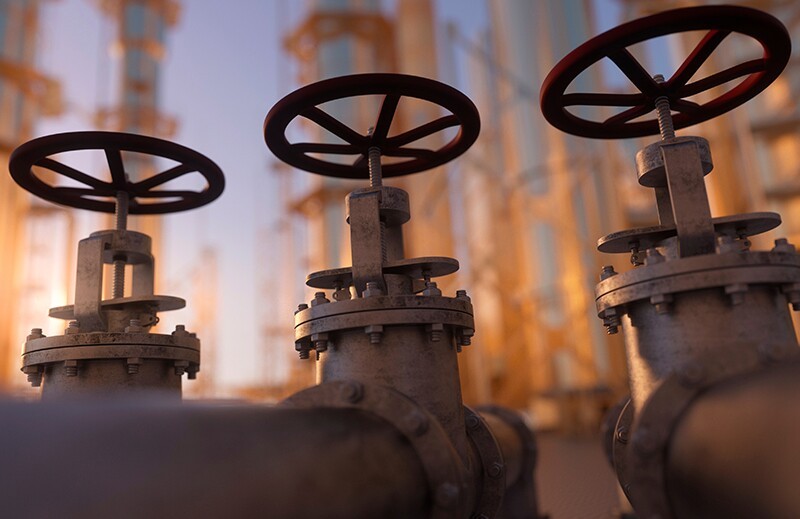What Will the Future Hold for Uzbekistan’s Gas Problems?
Can the infrastructure of Uzbekistan carry the country into a geopolitical resource hub? The country has certainly benefited from energy exports: In terms of available reserves, Uzbekneftegaz remains the sacred cow of the state, which has generated significant foreign exchange earnings. Prime Minister Abdulla Aripov even started to switch industrial enterprises “of no social significance” from natural gas to coal so that more gas would be available for export.
In 2019, natural gas was sold on the domestic market at a price of US$118 per thousand cubic meters while Uzbekistan sold gas for export at US$145 per thousand cubic meters. The money came in foreign currency. The conversion of small and medium-sized businesses (such as restaurants and factories for the production of building materials) to coal made it possible to free up over 2.1 billion cubic meters of gas, that is, around US$315 million.
On the other hand, gas supply on the domestic market left much to be desired. During the winter period, temperatures unexpectedly dropped below -20 degrees Celsius. Due to a lack of heat in residential buildings in November and December in several regions like Andijan, Karakalpakstan, Nukus, Fergana and Khorezm, the population began to attend unauthorized rallies. In 2020, the Ministry of Energy reluctantly admitted that there was a shortage of gas due to depletion of gas fields.
On December 16, 2020, the government decided to reduce the export of gas and direct it towards domestic needs. That said, exports were being reduced even earlier than this. In fact, the first reports of the suspension of fuel supplies to other countries appeared in March 2020, when the global COVID-19 pandemic began and the main gas consumer, China, reduced imports from Uzbekistan.
In 2021, Uzbekistan once again experienced extremely low air temperatures. Gas exports were again limited. Even though Deputy Chairman of Uzbekneftegaz, Bakhodir Sidikov, said that fuel reserves would last for several decades (in his words, “We have very large, promising areas for geological exploration, but the current approved hydrocarbon reserves will last for 20-30 years”) the coming months proved that these forecasts to be overly optimistic. Soon after, the Ministry of Energy announced that even with limited exports, Uzbekistan lacked about 20 million cubic meters of gas per day.
On the night of December 31, 2022, supplies to Uzbekistan from Turkmenistan stopped due to burst gas pipelines. Unusual frosts caused increased gas consumption, resulting in a shortage of fuel for power plants and boiler houses. The country began experiencing long-term power outages, problems with heating, hot water, and gas pressure in homes. Against the backdrop of the emerging energy shortage, the authorities were forced to close gas stations and industrial enterprises in order to distribute the remaining gas to the population and social facilities.
And thus, what was already known by many Uzbeks became apparent to the rest of the world. More than half of the gas pipelines in Uzbekistan (45 thousand km) were laid more than 30 years ago. The general deterioration of the gas transportation system was such that even in the best years, the country lost about 25% of fuel due to inefficient infrastructure. And not much had been done to invest in the modernization of the gas transportation systems in years. Gas loss was paid for by consumers, and as such, service providers had little incentive to invest in repairs.
According to the director of the Ma’no Center for Research Initiatives, Bakhtiyor Ergashev, Uzbekistan is gradually reducing the volume of natural gas produced. Over the past 30 years, it has decreased this by about 10 billion cubic meters. Reserves are limited, and new deposits are not enough to provide a sharp uptick in production. The domestic market has grown along with the country’s population, and supply has not been able to keep up with demand.
It was in this environment that the Ministry of Energy of Uzbekistan welcomed Russia’ proposal to create a gas hub with the signing of the Gas Supply Roadmap with Gazprom. But it is still unclear how much international cooperation will improve the domestic situation. If all remains the same on the home front, Russian and/or Turkmen gas will likely continue to leak through a sieve of worn-out pipes. Uzbekneftegaz talks about Public Private Partnership, or PPP, mechanisms while at the same time underlining the strategic nature of the gas transportation systems, which should not be transferred to foreign investors. As explained above, losses appear to be too profitable in the current setup.
In Uzbekistan, problems related to the gas supply infrastructure are naturally associated with the country’s head of government, Prime Minister Abdulla Aripov. What is needed is qualified state personnel capable of upgrading the collapsing infrastructure and willing to help the country’s economy, not only working as problem solvers but also as technical specialists able to take responsibility and motivate natural monopolists to take specific and decisive actions. One such name that has been brough up by local experts is the Water Resources Minister, Shavkat Khamrayev, citing previous examples of his capability in solving large-scale problems. For instance, his supporters say, Khamrayev managed to build numerous reservoirs in Uzbekistan against the backdrop of an acute water shortage in the country, so as not to depend on the upstream countries along transboundary rivers during the growing season. He is also credited for effectively modernizing hydraulic structures built in Soviet times and for establishing relations between Uzbekistan, Kazakhstan and Kyrgyzstan on the rather difficult issue of mutual water supply. At the 70th meeting of the International Executive Council of the International Commission on Irrigation and Drainage (ICID), Khamrayev was unanimously elected vice-president of the ICID for a three-year term between 2019 and 2022.
It remains to be seen weather President Shavkat Mirziyoyev will be able to assemble a new team to manage the country’s gas resources. What is clear is that new commitment and improvements are still urgently needed.



